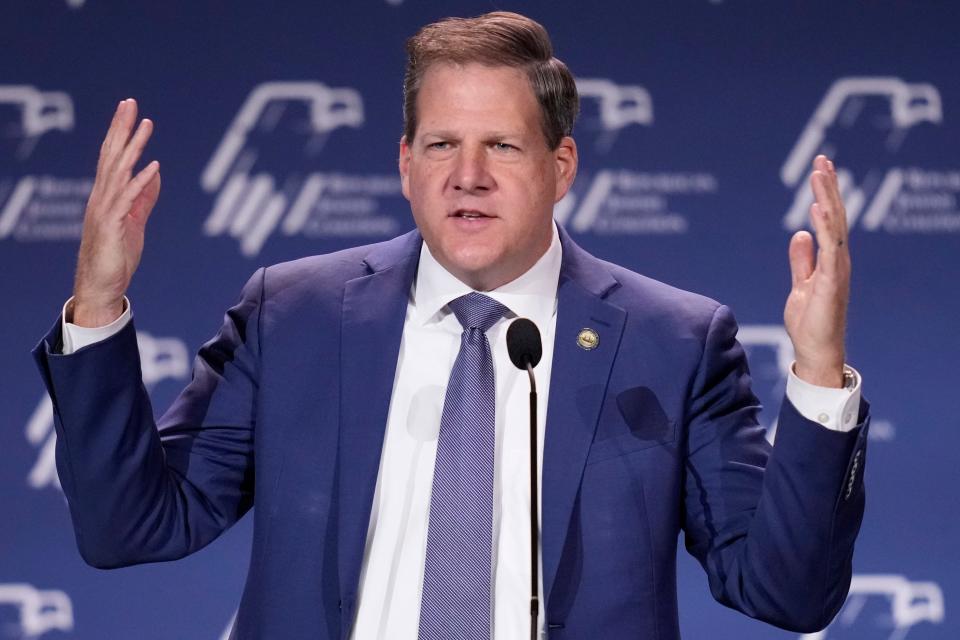In growing backlash, Sen. Shaheen to skip WH ball over plan to push back New Hampshire Democratic primary
The Democratic National Committee’s decision to push back New Hampshire’s first-in-the-nation primary has drawn swift backlash from officials in the Granite State vowing to hold the state’s primary first regardless of the committee’s nominating calendar.
In the latest sign of disagreement following the decision, Sen. Jeanne Shaheen, D-N.H., announced she will be boycotting the White House’s Congressional Ball on Monday night. Senator Maggie Hassan, also of New Hampshire, also did not attend the ball because of the decision on the primary.
'Emotional' moment: Inside Biden's rollout of Democratic primary lineup that moves up South Carolina
The ball, a formal black-tie gathering for Washington lawmakers, is part of the White House’s larger reopening, serving as a sign of the country’s return to normalcy after two years of the COVID-19 pandemic. The Biden White House most recently held its first state dinner with French President Emmanuel Macron, who was accompanied by other high-profile guests such as musician Jon Batiste.

"As Senator Shaheen has said, the President’s proposal unnecessarily makes Democrats in New Hampshire, from the top to the bottom of the ticket, vulnerable in 2024,” said Sarah Weinstein, spokesperson for Shaheen. “Tonight, Senator Shaheen is focused on helping to make New Hampshire’s case heard."
For New Hampshire to remain in the calendar's early voting window in February — although no longer the nation's first Democratic presidential primary — the New Hampshire Democratic Party must submit a letter signed by the Republican governor and majority leaders in the Republican-controlled state legislature. If not, the state's primary date will be relegated to March with other states.
The DNC's calendar has five states voting in its early window: South Carolina on Feb. 3, New Hampshire and Nevada on Feb. 6, Georgia on Feb. 20, and Michigan on Feb. 27. States in the early voting window wield significant influence over the eventual nominee.
Stay in the conversation on politics: Sign up for the OnPolitics newsletter
The letter asks for a statement of intent from the governor and leaders on two points: repealing state law that mandates New Hampshire hold its presidential primary first and also expanding early voting. Both those changes would need to be made by Feb. 1. The state’s Democratic Party has until Jan. 5 to submit the letter.
“New Hampshire will not be blackmailed by Joe Biden and his political hacks in the Democrat Party,” New Hampshire Gov. Chris Sununu’s office said in a statement to USA TODAY. The Granite State's first-in-the-nation status has become central to the state's identity in the nation.

New Hampshire’s state Senate majority leader, Republican Jeb Bradley, also told USA TODAY he has no intention of signing any letter the DNC wants.
“For them to tell us that we have to change our law, we have to change our voting guidelines, my answer is sorry, but no way,” said Bradley.
State law mandates New Hampshire’s secretary of state set the presidential primary on the second Tuesday in March or 7 days before “any other state shall hold a similar election,” whichever comes first. Secretary of State David Scanlan has already said he will set the date before any other primary.
New Hampshire House majority leader Jason Osborne did not respond to request for comment.
Shaheen in an interview after the panel’s decision was adamant that the DNC could have increased diversity of voters in its early window without forcing New Hampshire into a position of violating its state law.

“They didn't need to pit states against each other, and they didn't need to put New Hampshire Democrats in the position that they have, where we're already being attacked by Republicans in the state,” Shaheen said.
That state law has warded off challenges to New Hampshire’s leadoff position in the past, and Shaheen said the state will continue to uphold it.
Should New Hampshire defy the DNC and hold its primary first regardless of the calendar, the DNC could punish the state by stripping it of any delegates in the nominating convention, meaning the state would lose its voting power.
But the small state only sent 33 delegates to the 2020 Democratic National Convention, compared to the total 3,979 delegates who voted. The architect of the law mandating New Hampshire’s leadoff, former state lawmaker Jim Splaine, said the state doesn’t have much to lose with its delegates.
“It’s not gonna happen,” Splaine said of the prospect of New Hampshire being anywhere else on the calendar but first. “(The DNC) just doesn’t get it.”
This article originally appeared on USA TODAY: Democrats' plan to push back N.H. primary sparks growing backlash

 Yahoo Movies
Yahoo Movies 
